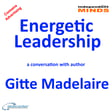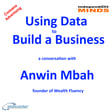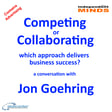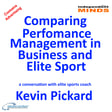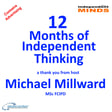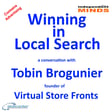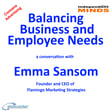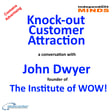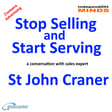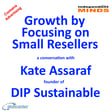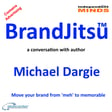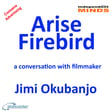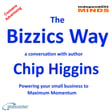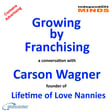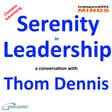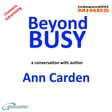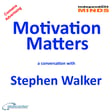
The Empathic Leader – a conversation with author Melissa Robinson Winemiller
How EQ via Empathy Transforms Leadership for Better Profit, Productivity, and Innovation.
Melissa Robinson-Winemiller is a trainer who operates on a global basis. Melissa believes that in an era where everyone is niching down, empathy is the one thing that benefits the whole human race.
In this episode of The Independent Minds Melissa explains to host Michael Millward what empathy and emotional intelligence (EQ) are.
Michael and Melissa explore why despite evidence of the value added by managers with empathy and EQ skills many organisations still see it as an optional extra.
Their discussion includes an examination of how leadership and management are different, how those differences have evolved since the start of the industrial revolution and what the future of leadership and management is likely to look like.
They compare how industrial organisations and natural organisms are structured and the lessons leaders can take from the differences. Perhaps most importantly they identify how empathic leadership can help any organisation put substance into the phrase:
Our People Are Our Most Important Asset.
More information about Melissa Robinson Winemaker and Michael Millward is available at abeceder.
Audience Offers
The Independent Minds is made on Zencastr, because as the all-in-one podcasting platform, Zencastr really does make creating content so easy.
If you would like to try podcasting using Zencastr visit zencastr.com/pricing and use our offer code ABECEDER.
Travel
With discounted membership of the Ultimate Travel Club, you can travel anywhere at trade prices on flights, hotels, trains, and many more travel related purchases.
Fit For Work We recommend The Annual Health Test from York Test; a 39-health marker Annual Health Test conducted by an experienced phlebotomist with hospital standard tests carried out in a UKAS-accredited and CQC-compliant laboratory.
A secure Personal Wellness Hub provides easy-to-understand results and lifestyle guidance
Visit York Test and use this discount code MIND25.
Visit Three for information about business and personal telecom solutions from Three, and the special offers available when you quote my referral code WPFNUQHU.
Being a Guest
We recommend the podcasting guest training programmes available from Work Place Learning Centre.
We use Matchmaker.fm to connect with potential guests If you are a podcaster looking for interesting guests or if you have something interesting to say Matchmaker.fm is where great guests and great hosts are matched and great podcasts are hatched. Use our offer code MILW10 for a discount on membership.
We appreciate every like, download, and subscriber.
Thank you for listening.

